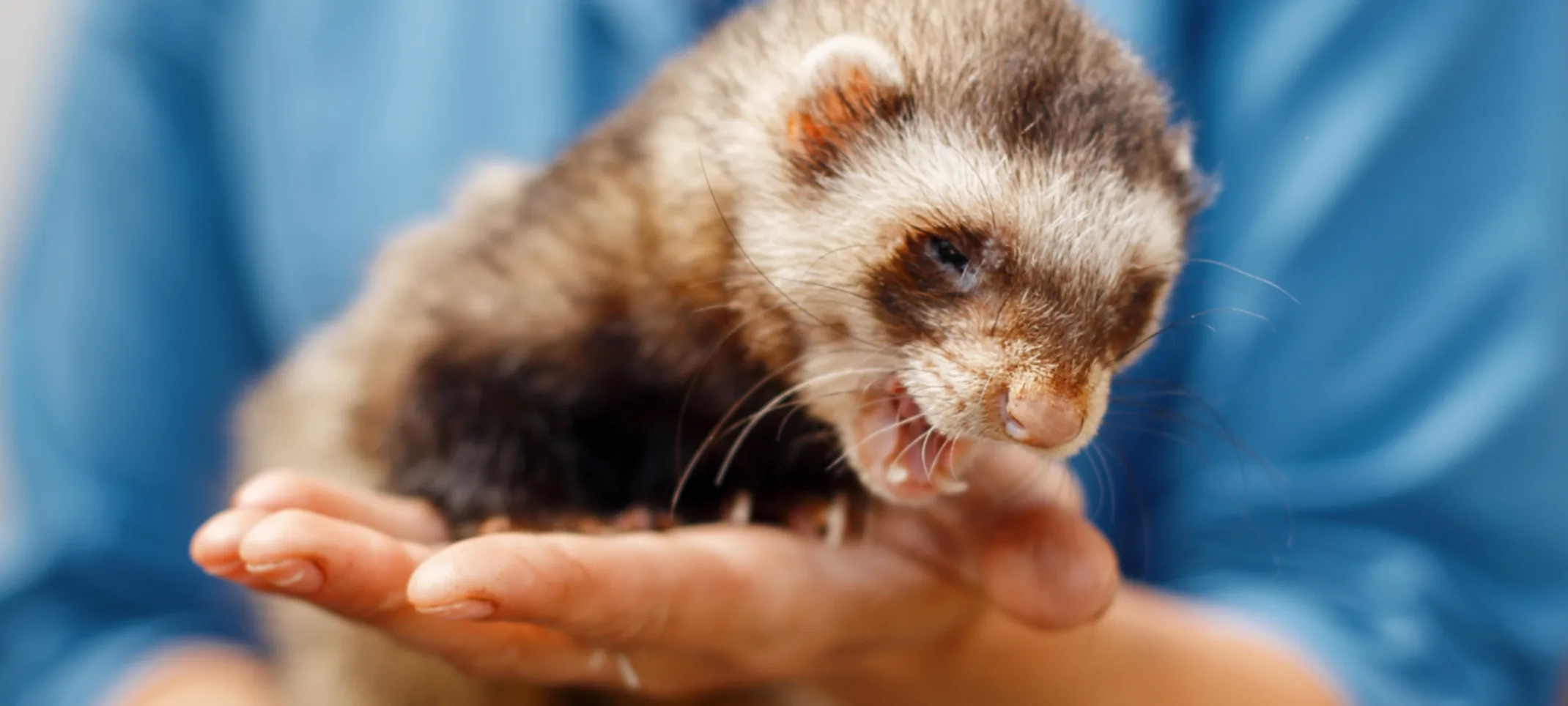Old Derby Animal Hospital
Small Animal Vet Care (Rabbits & Ferrets)
In addition to caring for dogs and cats, we're also pleased to be your small animal vet in Hingham, MA for rabbits, ferrets, and various small animals (including guinea pigs, rats, mice, gerbils, and hamsters).

Small Animal Vet Care in Hingham, MA
In addition to caring for dogs and cats, we're also pleased to be your small animal vet in Hingham, MA for rabbits, ferrets, and various small animals (including guinea pigs, rats, mice, gerbils, and hamsters). Small mammals may be very different from dogs and cats, but they still need regular checkups with their veterinarian. Our veterinarians are skilled in caring for these special creatures and offering important and educational advice about their needs.
If you’re about to welcome a ferret, rabbit, or other small animals into your home, we look forward to meeting you!
How Much Care Do Ferrets and Rabbits Need?
Small animals like ferrets and rabbits require individualized treatment to meet their highly specific needs; deviating can result in an unhealthy and unhappy pet. This includes a balanced diet, regular interaction with their humans, and a well-maintained environment tailored to their needs and comforts. They also benefit from routine preventive care, which keeps the threat of disease at bay.
Our Veterinary Services for Ferrets, Rabbits, and Other Small Animals
Regular wellness exams are just as vital to ferrets and rabbits as they are to dogs and cats. Our veterinarians are happy to perform a thorough physical examination on your pet and answer any questions you have regarding:
Husbandry: This includes cage size, bedding, heating, and lighting.
Nutrition: Most health issues in ferrets and rabbits are due to a poor diet.
Surgical care: This includes spaying, neutering, and dental care.
Behavior: We can offer advice to help your pet overcome issues such as loneliness, aggression, and/or difficulty interacting with people/other pets.
Handling: How often and in what way should you be handling your pet?
Grooming: Some pets have their own ways of keeping clean, while others might need a bit of help.
Signs of illness: Like dogs and cats, ferrets, rabbits, and other small mammals are good at hiding pain and illness.
Even the healthiest pets can run into problems. In these situations, our team is readily available to see your pet for an evaluation. We can diagnose and treat various medical conditions with the help of a physical exam, X-rays, blood tests, and other diagnostics.
If a surgical procedure is needed, we can perform oral surgery, growth removals, and more. For ongoing care, we can also provide medications and supplements to support your pet’s health.
Caring for Your Ferret
Ferrets are friendly, inquisitive creatures that sleep 14-18 hours a day. Their life expectancy can vary, but usually averages about 5-9 years. They also need to be vaccinated, and non-breeding females should be spayed once their hormones have developed fully.
Here’s our recommended care schedule for ferrets (timeline may vary):
First physical exam at 8-10 weeks or right after they arrive at your home; we need to make sure your pet is growing well and not suffering from any congenital issues.
First distemper vaccination should be given around this time as well, followed by booster shots every 3-4 weeks until they reach 15-17 weeks old.
We recommend their first rabies vaccination at 16 weeks or older. Every ferret needs to be vaccinated annually for rabies.
They need to be tested for intestinal parasites and receive routine parasite preventatives, including heartworm prevention, which you should start as early as possible.
Ferrets have a higher risk for allergic reactions to their vaccines. Therefore, we recommend waiting up to 30 minutes after their injection so we can monitor their health and watch for signs of a reaction.
Your ferret should see us every 6 months for their wellness exam, regardless of age.
